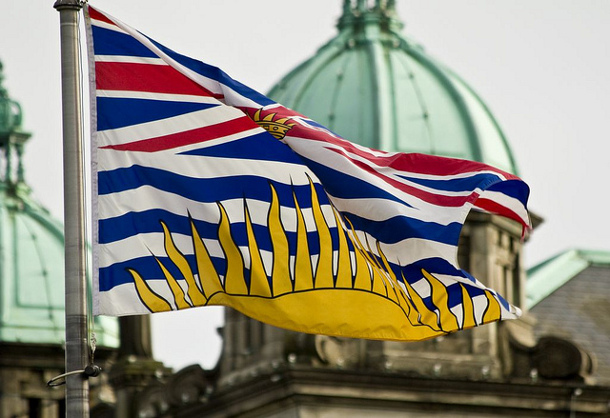Even though low-income families in British Columbia pay more than double the total tax they would in Alberta or Quebec, their taxes are lower than they would be in many other provinces, said Finance Minister Michael de Jong.
"We're in third place, I think, in that particular wage bracket," de Jong said Thursday. "In every single wage bracket identified, a comparison across the board puts us in either third, second or first place. In that case, it's third place in the country."
During the budget presentation, de Jong stressed that B.C. has the "lowest provincial personal income taxes for individuals earning up to $122,000" in 2016. He drew a contrast with Quebec, where he said someone making that much money would pay $8,000 more in income tax than they would in B.C.
However, as The Tyee reported yesterday, a table at the back of the Budget and Fiscal Plan -- 2016/17 to 2018/19 shows poorer families actually do worse in B.C. when the overall tax picture is considered.
That table compares all 10 provinces on a wider slate of taxes that apply to families and individuals at various income levels, factoring in child benefits, property tax, sales tax, fuel tax, carbon tax, health or payroll taxes and federal taxes.
A family of four in B.C. with an income of $30,000 a year would pay $3,267. The amount is higher in six other provinces, but the B.C. figure is $250 more than they'd pay in Ontario and over double the $1,547 they'd pay in Alberta or the $1,331 they'd pay in Quebec.
Asked why a struggling family should pay twice as much in tax in B.C. as they would in Alberta or Quebec, de Jong said, "For the moment."
But any changes to tax levels would be applied across all income levels, he said. "We have worked hard to drive our personal income tax rates down and are either at the top or second or third place, and we'll continue to find ways to ease the tax burden that all British Columbians face as our economy grows stronger."
What about having a negative income tax rate that returns money to low-income families as Manitoba, Ontario, Saskatchewan and Quebec already do? "We haven't contemplated that," said de Jong.
He noted B.C. does provide some refundable child tax credits and raised the threshold this year below which a family pays no income tax.
Quebecois get more for taxes: economist
Iglika Ivanova, an economist with the B.C. office of the Canadian Centre for Policy Alternatives, said that the inequities between provinces extend across the income brackets, especially when differences in the cost of living are considered.
"When comparing taxes paid in different provinces, we have to keep in mind that different provinces also offer different services in exchange," she said.
"For example, a family in Quebec pays somewhat higher taxes than in B.C., but they have access to better parental leave, affordable child care and a host of other benefits," she said. "And have you looked at housing costs in Quebec? They are a fraction of what most families pay in B.C."
De Jong presented several measures in the budget that he said were aimed at making housing more affordable, but expert said they were much too minor to dampen the province's hot real estate market. ![]()
Read more: BC Politics
















Tyee Commenting Guidelines
Comments that violate guidelines risk being deleted, and violations may result in a temporary or permanent user ban. Maintain the spirit of good conversation to stay in the discussion.
*Please note The Tyee is not a forum for spreading misinformation about COVID-19, denying its existence or minimizing its risk to public health.
Do:
Do not: